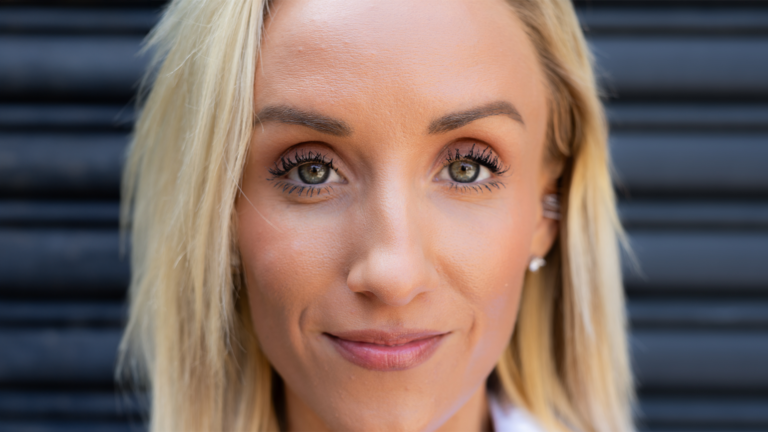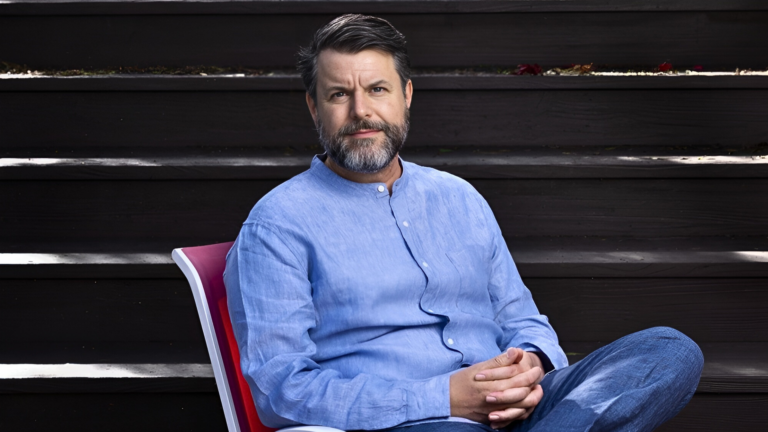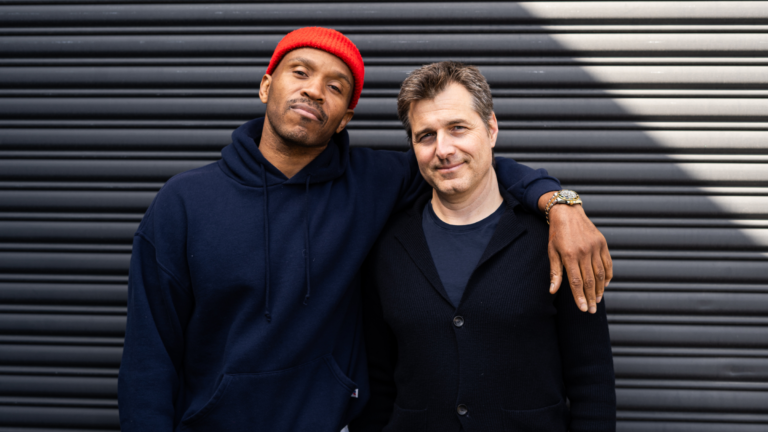This week’s conversation is with Paul Rabil, a former professional lacrosse player and co-founder of the Premier Lacrosse League (PLL).
You might remember Paul from his first appearance on Finding Mastery back in 2019 – that’s episode #167 if you want to check it out.
For those unfamiliar, Paul is widely regarded as one of the greatest lacrosse players of all time. Over his playing career, Paul won two NCAA National Championships at Johns Hopkins, three league MVP awards, appeared in 10 straight All-Star games, and is a two-time World Lacrosse Champion with Team USA.
However, Paul’s legacy reaches far beyond his stature as a world-class player. In 2018, Paul co-founded the PLL, a new, improved, and more equitable professional lacrosse league – all while still competing as one of the best players in the game.
In all, you would be hard-pressed to find an athlete who has had a bigger impact on his sport than Paul – he is an emblem for passion, grit, resilience, excellence, living with purpose, and so much more. In this conversation, we dive into what it took (and what it continues to take) for him to become one of the best in the world at his craft.
“I would much rather go down missing, go down swinging, than not have taken the shot at all.”
In This Episode:
Fear of losing or thirst for winning?
Sport became an outlet and this unquenchable thirst to dominate and to win. And part of that inspiration for me daily was the feeling that I was never enough, the fear of losing. I would listen all the time to some of the greatest players of all time, Larry Bird, Michael Jordan, Tom Brady. Now, their fear of losing drives them more than their satisfaction of winning, which feels so ironic given that we do all this stuff just to win and we ignore it when we do.
Decision making
Buddha would remind us that, how could we know that the other decision was right because it never played out? The choice that we made on the other end, we consider bad or wrong, we have no clue what could have happened in the sequence of events. Even getting in a car and driving over here to have this podcast, we just can’t predict it. So there’s in essence, not a right or wrong, it just is. And when I look back at my career and every chance then as a byproduct of that assumption is we have the ability to evolve, we have the ability to do something different or take on more risk or be more conservative, or start a family, or start a new job, every next decision we make. So embrace everything that’s gotten you up to this point. Those game-day decisions, those not so great decisions. That was just all a part of my journey. I can’t take the good without accepting and embracing all the bad or challenges that happened in my life.
Going and getting what you want
I have a very high risk appetite and I’m, as ambitious as I am, speculative. I am highly interested and curious in different things, and if it’s something that feels like it’s either calling me or something that I’m really interested in, then something in my mind just goes, “Okay, go attack it.” And it’s never in a casual manner or without real work and effort. It’s always like, “Okay, then process what’s it going to take to get there.” Whether it’s starting a professional sports league or attempting to be the number one draft pick in professional lacrosse, which was at the time. And it’s just going, man, it’s like this is my priority, I’m blocking out everything else with compassion, but this is what I fucking want to go get.
His inner critic, “Little Paul”
Little Paul’s just my younger self, that’s the one who’s yelling at me that’s like, “Oh, you’re not going to be great, you’re not putting your words together well and whatever.” And it’s our critical inner voice psychologically. And that goes back to what I was talking about, our attachment styles and the way we were raised and intentionally well done by my parents and sometimes unintentionally sort of left out on my own to just fend for myself. And that’s sometimes where the best athletes are formed because you’re just, it’s going to fight.
How does he work from the inside out?
First and foremost, a therapist. And then a lot of reading, and then a fantastic approach to family sort of integration as well as how I try to integrate what I do in my love life. And it really should be all encompassing, meditation. I’ve learned, especially the back two years of my career, a lot of my practice was its own form of therapy outside my training, it’s meditative in a lot of ways. So yeah, I think it’s always progressing, and it always needs to be sharpened.
Acceptance
With my breadth of experience across social media, across podcast, PR comms, I have to actively turn off the protective element of how I want to be perceived or communicate on a show that’s going to go out on the internet. I think what therapy really gets at its core is a level of calmness with who you are as a human and acceptance and safety with all of that. And with those three things you learn that what the rest of the world or people might think of you is just them sorting through their own stuff, less to do with you. And the best we can do is just show up as who we are.
Curiosity, integrity, and high standards
What I tried to distill my work ethic and perfectionism down to is intellectual curiosity, and it came out in the physical form while I was playing. And I’ve learned in business, it’s come out in the intellectual form, but you’re right that you have to have a level of integrity as a practitioner, otherwise you’re not going to go to the level that your coach or general manager or organization expects out of you, so I’m sure when you look at personality tests for athletes, it’s a lot of integrity-based because then you know, okay, in the end, the best judge of someone is themselves, so how are they holding them themselves up to that standard?
Your best or the best?
What I wanted for myself? I wanted to be the greatest lacrosse player ever. And I said that… The greatest. I wouldn’t be stopped. And I didn’t get there. And some people may, hardcore fans or whatever may say, it’s just not what I think. I think Gary Gate and Jim Thorpe or Jim Brown and those. All that being said, I was hellbent on getting there. I think if you are in a class of people, and I learned, not everyone’s there, I launched businesses around basically what I’ve learned is not true, that thinking that everyone wants to be the 1% of the 1% of the 1%, they just don’t. It’s just too much sacrifice and too much pressure and so much pain, injury and surgery and loss and loneliness. But I was that, I wanted that.
Creativity starts with fundamentals
It’s the way that you architect your practice routines, the way that you think about the game, the way you analyze the game. I think sport is a combination of math and art. The math is your fundamentals. So you got to get, in our case, the overhand pass. You’ve got to get it with your right and your left hand. You’ve got to be able to run straight. You’ve got to be able to zigzag. You’ve got to be able to do the fundamentals of athletic meets skill performance in whatever it is your craft is. And then if you get that, if you learn long division really well and that becomes sort of an innate way of moving up and down the field and understanding schemes and Xs and Os and game plans, then you can unlock your creative flow and paint outside the lines. And so you have to have the math to be able to playfully and artistically create on the field.
Wanting to take the last shot of the game
Absolutely. Every time. I wanted to… I think something that I’m lucky to have, and this goes back to my parents and the humility that they brought into the household, but if I make mistakes or if I turn up poorly or whatever it is, I will raise my hand and be like, “That was on me, guys.” And sometimes would get emotional in the locker room and then work my ass off and it would happen again and never would deflect my responsibility in it. And when I did, and I would realize it, or someone would tell me at some point I’d be like, “Fuck,” go back and apologize. But I would much rather go down missing, go down swinging than not have taken the shot at all.
Inaction is an action
I always thought about inaction as an action itself… I cultivated that every day with practice. I was so aware that if I didn’t practice that I was giving up miles. And so it would sit on my conscience. I would wake up in the morning and know if I skipped my workout in the morning, I would make sure I hit it late at night. That’s not team workouts. That was my own stuff. Because I knew that the team stuff was taught by my dad philosophically is meant for the team.
Putting in the extra work
If you think about it, if you’re a coach, in our case, how many reps do you take? How many shots do you take in practice? There’s team shooting drills, maybe nine or 10? How many shots do you need to take a day to get better? Probably 100, 150. It ain’t happening in your team practice. Team practice is for the coach to build schemes, Xs and Os and chemistry, then you got to go do your own shit. That’s where the real practice is. And everyone’s so caught up in the team stuff and tournaments and games that they’re missing the real opportunity to grow.
“My way or the highway” doesn’t work
I’ve also learned as a captain for years that I used to try to pull everyone to be like me. And if everyone wasn’t like me, then the old coach mindset, we’re not ready to win, we’re not prepared. And I would get really frustrated. And then I’ve learned that everyone has their own unique journey and set of circumstance where they can play optimally. I’ve played with one of the greatest players in the world and Lyle Thompson, he’s super quiet and calm and meditates for a game. And Lyle’s not going to give me a head butt and scream. And so Lyle and his crew are in that corner and then you have another crew on the other and I’m hanging out with the defenders just banging, getting ready to go.
A mindset for preparation
People ask me, “What’s your pre-game meal?” All this stuff. And it’s like, “Well if you’re thinking about a pre-game meal, you’re not even on my level.” Every meal’s my pre-game meal, that’s how it should be.
When stuff hits the fan, how do you lead?
There’s probably three ways that you see people manage it. One is probably paralysis and what that is act like there’s not a lot on the line and just continue to go forward. It’s not me, that’s not acknowledging the elephants in the room. The second is more of the traditional way of what you see leadership in sports or leadership in business, which is very cutthroat and demanding and holding people’s feet to the fire or else. It’s not me, doesn’t work. I’ve tried it. The third, which I think is the best way to lead here, which is radical honesty, acknowledging the stakes, recognizing your role in such, oftentimes leading by example of errors or misses that you are accountable for as a leader. And then recognizing what needs to happen, thinking creatively and critically with your leaders to deploy a new plan to get back on track. And then ultimately ending by telling everyone you’ve got their back and we’re going to do this together. And it’s we.
The first 100 days of creating the PLL
In the first 100 days, you have to be very measured, you have to live in the process and you have to just go. You have to push all the chips in and know that, at least for us, where it was high stakes because we put our flag in the ground on June 1st, we weren’t a software company that could delay the product launch. We had a television deal on the line. We had player contracts on the line who had, by the way, left a league that was still in existence to come play with us. All of that business building, we had a clear finish line, so it was good because sometimes stakes create urgency and stakes even create creativity.
Being present
Something that I’m working on and I really struggle with is being present because in my life, there’s so much going on and I’m trying to tackle a lot at once. And these moments are I’m really appreciative because it was just present with you for however long, two hours. And I hope that I can continue to experience these moments every day with people that I work with and some of my close friends and my family and my partner and things like that. And that is a combination of striving for while, also embracing when you’re not, and full acceptance of, “Ah, I wasn’t there today for that person,” or, “I wasn’t there in the way I wanted to be for me either.”


